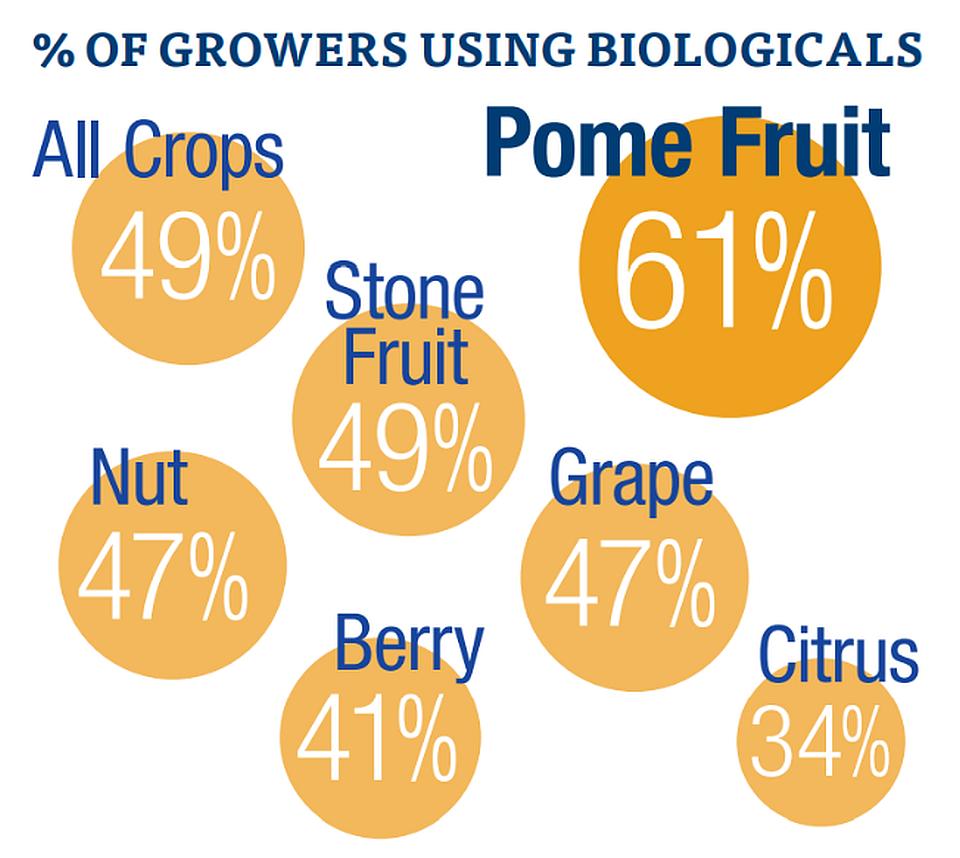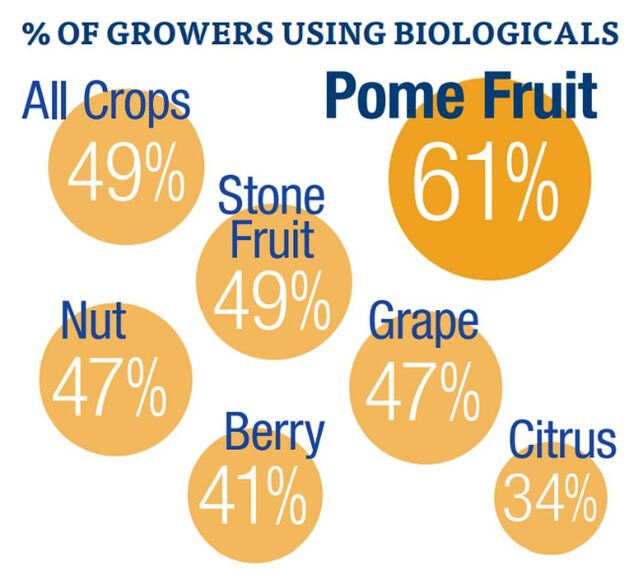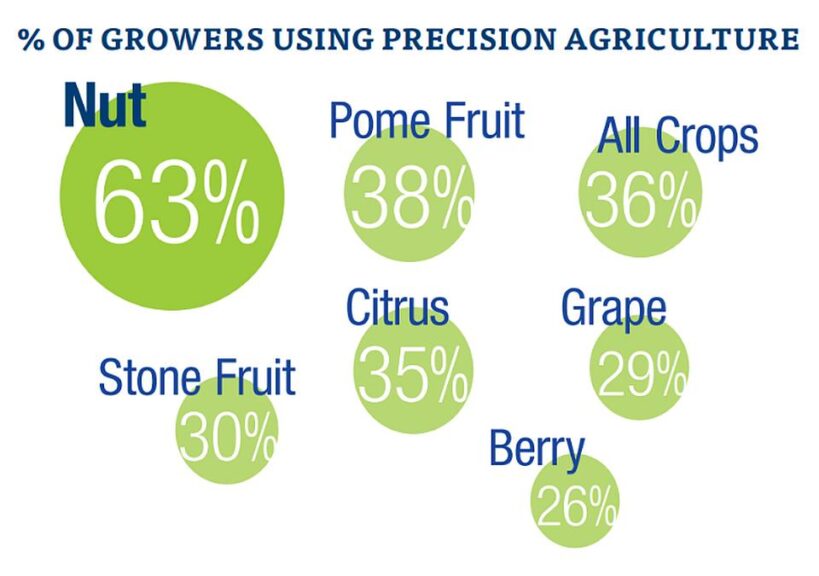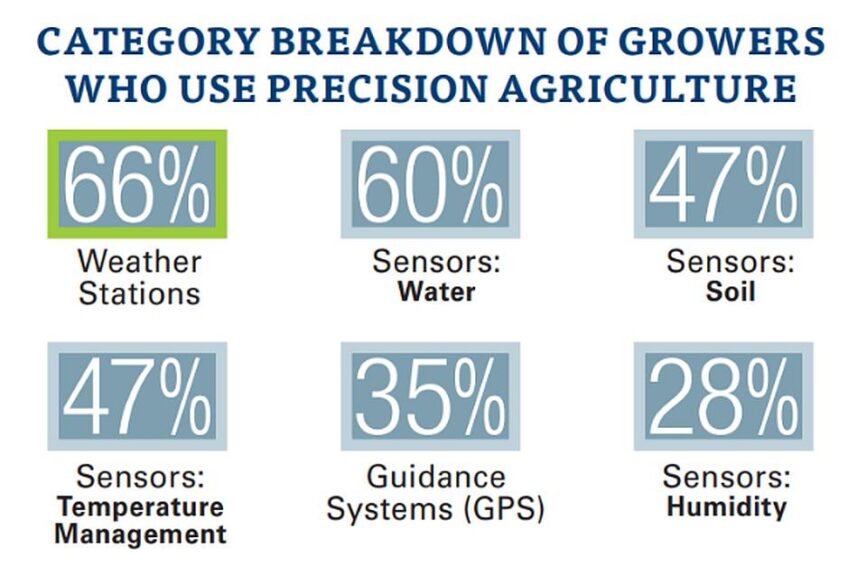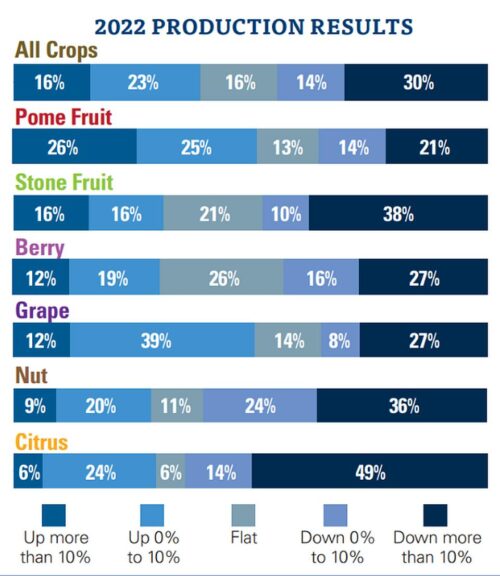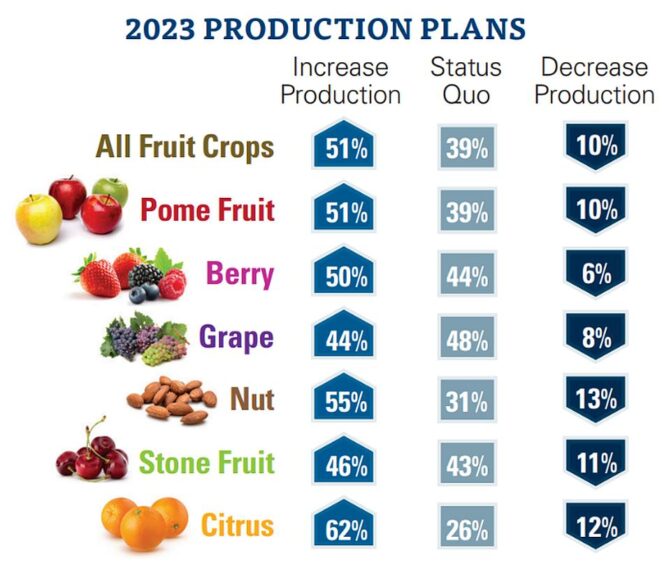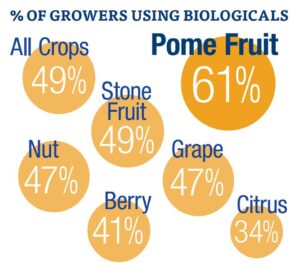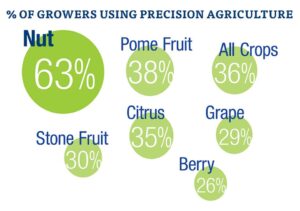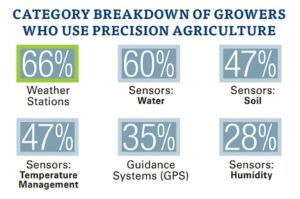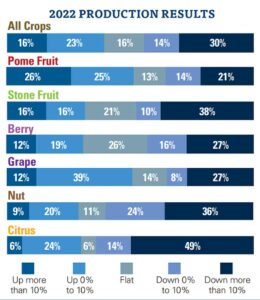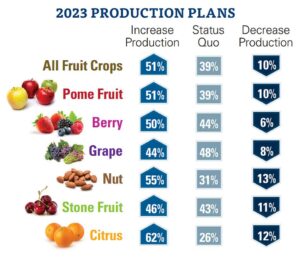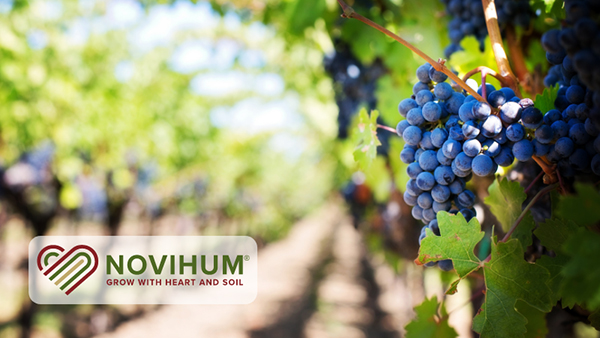2023 State of the Fruit and Nut Industry Survey: Growers Are Spending Wisely
A large majority of U.S. fruit growers express no regret after buying into two of agriculture’s most relevant technologies — biological controls and precision agriculture. According to American Fruit Grower’s 2023 State of the Fruit and Nut Industry survey results (634 respondents), only 4% of biological control users are disappointed with their purchases. Instead, 60% are satisfied with their use of biologicals, which are broken into six product categories.
“The whole package works very, very well for us,” an apple and pear grower in Washington state says. “We have always been proponents of IPM. We were so impressed with results in our organic blocks that we use them on our conventional fruit as well. It is safer for our people as well.”
“We have usually been very pleased with the biocontrols we have used,” a New York and Florida berry grower says.
“We’ve used them over the years and are pleased that they offer a tool that is effective and contributes to our integrated pest management approach,” a Colorado stone fruit grower says.
“They’re a tool. Growers today need to look at and embrace all tools,” a stone fruit grower in California says.
Some of those tools represent precision ag, where the survey response is even more positive: While again only 4% of the survey respondents voice disappointment with their acquisitions, 70% are satisfied with any one of 19 tools that comprise the precision ag technology.
“Work smarter not harder!” a Wisconsin apple grower says. “Labor issue challenges are offset using mechanization and other precision ag tools. Pesticide spray monitoring/management increased efficiency and effectiveness and recovered all investment costs in the first two seasons of use.”
“I’m using as much as I can that I can apply to my set-up and afford,” another Wisconsin pome fruit grower says. “I’m always looking to improve the quality of my crop and reduce labor.”
“There will/must be more … and we will/must be current,” a California grower/packer of stone fruit says.
BIOLOGICALS BREAKDOWN
Six categories of biological products are available to growers: biopesticides; biostimulants, biofertilizers, semiochemicals, such as pheromones and plant volatiles; microbials, such as viruses, bacteria, and fungal pathogens; and macrobials, including predators, parasites, and nematodes.
Biopesticides, at 62%, are the most popular form of biological controls used by growers.
While not as frequently purchased as biopesticides, pheromones are the most popular discussion topic in the survey.
“I do not like to spray pesticides. Since using pheromone confusion twist ties, there are MANY more lady bugs and bees on our small farm,” a California pome fruit grower says.
“We have used pheromones for codling moth in walnuts and NOW (navel orangeworm) for almonds, with great reduction in flare-ups requiring in-season spray,” a California grower says.
“Pheromones have worked well in stone fruits but are disappointing with the codling moth,” a Utah stone fruit grower says.
Several growers note their pairing of semiochemicals with microbials.
“Mating disruption is a core part of our pest control strategy on the farm. Virus is a component of that plan as well,” a Pennsylvania pome fruit grower says. “We constantly strive to combat crop pest problems using multiple techniques to reduce the risk of resistance in our pest populations and to sustain low levels of pest pressure.”
“We have successfully used codling moth mating disruption for over a decade and more recently on leaf hoppers in the apple orchard and had some success with microbials to combat blight issues,” a Wisconsin pome fruit grower says. “I plan to increase usage where applicable.”
Successful nematode use is cited by a citrus grower in California and a berry grower in New York who has found the treatment effective for his sweet potatoes.
“We’ve used nematodes to control Japanese beetles for a few years, and this seems to have longer lasting impact,” a berry grower in Maine says.
In California, a stone fruit grower has introduced beneficial insects to control scale. “The scale has decreased, but it might be because birds eat them,” he says. “We don’t use any pesticides and have a diverse farm, with lots of flowers and hedgerows.”
PRECISION AG PARTICULARS
The most popular precision ag tools, according to the survey, are weather stations, various sensors, and GPS systems.
“Temperature monitoring is fantastic, with alarms, etc.,” a New York berry grower says. “We’re also doing automated irrigation to help efficiencies.”
“GPS guidance has enabled the planting of straight rows, the necessary precondition for further automation,” a New York apple grower says.
“Chemical variable rate technology has reduced chemical volume and costs,” an Oregon pome fruit grower says.
“Our most valuable tool was a leaf pressure chamber, enabling us to determine the amount of moisture in the foliage,” a California walnut grower says.
In Pennsylvania, a pome fruit grower is benefiting from smart spray systems that have been useful in reducing the total amount of material sprayed each year on many crops, which has reduced costs and the total pounds of chemicals placed into the environment. “Our weather station has been extremely useful in helping us track biofix dates for various insects and perfecting their treatments,” he says.
Scroll through the slideshow above to see results from the 2023 State of the Fruit and Nut Industry Survey.





